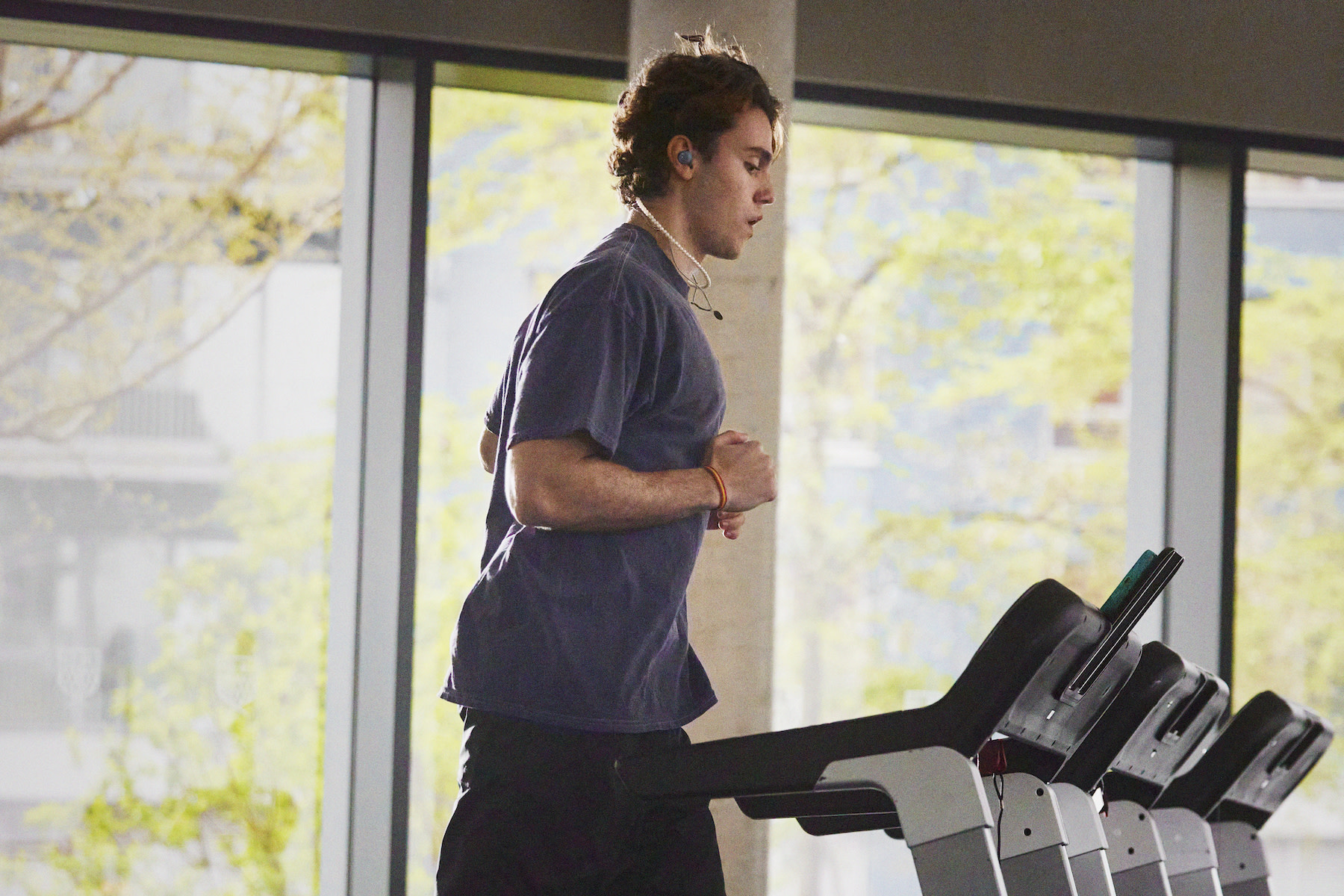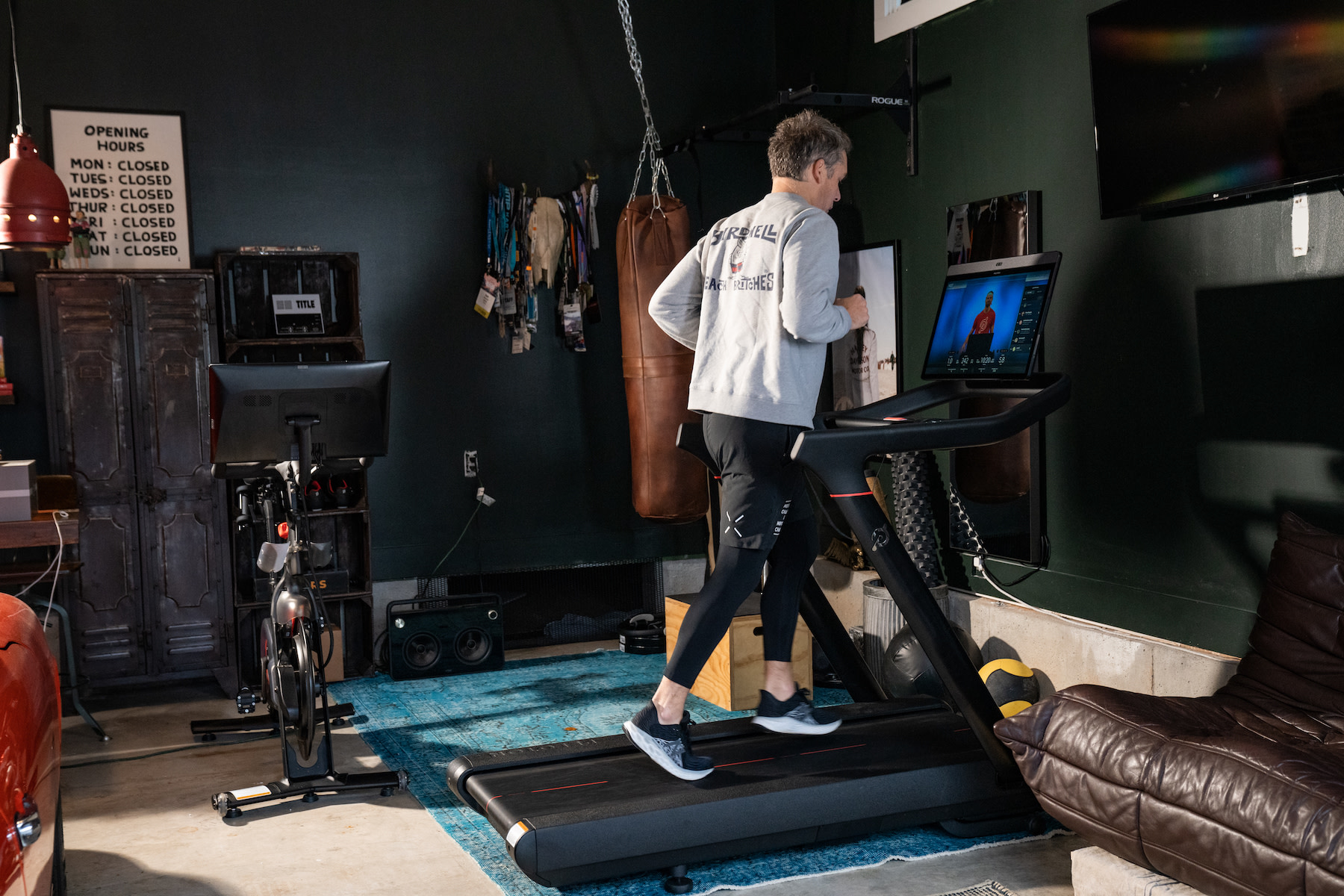
Want to Train For a Marathon? Here’s How Long You’ll Need
Training for a marathon takes time—here’s what your training plan should look like if you’re a beginner, intermediate, or advanced runner.
By Kristine Thomason•
So you want to run a marathon? For most runners, choosing to go after this iconic long-distance race is a pinnacle goal. But you can’t go from 0 to 26.2 overnight—preparing for a marathon takes significant time, dedication, and endurance (both mental and physical). However, it’s absolutely attainable, especially when you go into training with a smart strategy.
Here, Peloton instructor Susie Chan demystifies marathon training for beginners, offers some valuable tips for more experienced runners, and shares her advice on how long to train.
Marathon Training for…
Beginners

Who falls into this category?
According to Susie, a “beginner” is someone who’s never run a marathon before.
Recommended training weeks:
16 to 20 weeks
What should training look like?
For beginner marathon runners, the key is to build up slowly and steadily over that minimum 16-week block.
Rather than focusing on mileage right off the bat, Susie recommends beginners run for a specific amount of time. For instance, rather than aiming for three miles, you would plan to run for 30 minutes. Or, opt for an hour-long walk-run. “Maybe during that first time, you're walking more. And then the next week, you're running a little bit more,” she says. “But the crucial thing is to build up gradually.”
Once you feel more comfortable with consistent running, you can begin to incorporate more deliberate workouts. Susie recommends starting off with two to three runs per week, and increasing from there. “The important thing is to have a bit of variety,” she says. That might look like one slightly faster run, a Peloton interval workout, and one endurance (or “long run” per week).
While it can be tempting to level up training quickly—especially as you start to feel stronger—Susie strongly cautions against it, in order to avoid injury.
Another crucial training tip: Invest in a solid pair of sneakers. Susie advises visiting a running shop where an expert can measure your feet and gait in order to get the best pair of shoes to suit your needs. “It’s like picking a car. There are so many factors, and each runner is unique,” she says. A high-quality pair of sneakers will help ensure you run correctly and stave off injury.
However, if you do face any concerning aches or pains mid-training—just take a breather. “It’s better to have three or four days off than try to run with an injury and potentially be out for weeks—or even the entire race,” says Susie. “You can always stay active by riding your bike or doing a bit of weight training to get your body ready to be an overall stronger runner.”
One more piece of advice for beginners (or any level, for that matter) is to seek out a running group or club—because training with a group of other like-minded athletes can be really motivating.
Intermediate Runners

Who falls into this category?
Somebody that has had some experience, and is more performance- or goal-focused for the upcoming race.
Recommended training weeks:
14 to 18 weeks
What should training look like?
As an intermediate runner, you may have a couple of marathons under your belt. As such, your goals likely transcend simply finishing the race—perhaps you’re hoping to shave a few minutes off your time, or simply feel stronger during every mile. Whatever your motivations, Susie says it’s important to focus on consistency, balance, and variety in your training.
Incorporating cross training, for instance, can make a big difference in your overall performance—particularly strength and mobility work. “It doesn't have to be lifting really heavy weights or spending an hour in the gym—it can literally be 10 minutes, three times per week.” (The Peloton App has some great strength training for runners routines to get you started.)
Another key component to improving your time or performance is “working on your weaknesses,” says Susie. “What’s something you can improve on from your last race?” Maybe you didn’t drink enough water, maybe you started to get tired—in that case, consider how you can fuel differently during the race or focus on proper recovery.
Susie also recommends taking time to warm up and cool down your body. Consider taking a couple minutes to get your muscles ready before a run (try this great warm up routine), and practicing some yoga after you get back. Giving your body the care it needs can really pay dividends on race day.
Advanced Runners

Who falls into this category?
“Advanced marathoners are definitely goal-focused,” says Susie. “They want to get in under a certain time.”
Recommended training weeks:
14 to 18 weeks
What should training look like?
More experienced marathoners have the endurance side of the equation down: “The distance isn't necessarily what they're after—they’re chasing a time,” says Susie.
Since an advanced racer has likely grown comfortable with long runs, she says training focus can turn to tempo runs (running at threshold for longer periods), intervals, and general speed work. That said, she says it’s important to be careful during these quicker workouts. “Because, for me personally, the faster I run, the more prone to injury I am. So make sure you're really balancing out those tougher workouts with recovery and strength training.”
With this in mind, Susie recommends one or two tempo runs per week, an interval run, a long run, and a recovery run.
It’s also essential not to peak too soon. “You want to steadily increase your training, and give your body time to taper down,” she says. “Ideally, you’ll feel at your absolute strongest training point three to four weeks out from race day.”
What’s more, if you are going for a specific time, Susie recommends finding a proper pacer during the race—or see if a friend who is a bit faster than you could help you stick to your goal speed. And, leading up to the race, try to get to bed a bit earlier than usual for three to four nights prior. “You're likely going to sleep awfully the night before, so give yourself some time to relax, recover, and bank some rest,” she says.
Training for a Marathon with Peloton
Feeling inspired and ready to log some miles? Peloton has a great 18-week training program available through the Peloton App. No matter what your level—beginner, intermediate, advanced—this plan could help prepare you for race day. It incorporates a mix of outdoor running sessions, along with that essential cross-training that Susie recommends. Before you hit the ground running, keep in mind that Peloton’s Marathon Training Program is designed for runners who can comfortably run continuously for three to four miles.
Final Advice to All Runners
Whether you’re a beginner, intermediate, or advanced runner—Susie says it’s crucial to remember that during training, you’re likely to have some “off” days. Maybe you’re not feeling great, the weather is terrible, or you didn’t sleep well the night before. Whatever the reason, know that “it happens to every single runner who trains for a marathon,” she says. “They've all had one day, two days, or even several days, like that. And it's just part of the journey.” The important thing is to not put too much pressure on yourself, and know that there will always be another run, another race.
And, periodically during training, don’t forget to bask in your progress. “It can be so easy to worry about your next big run on Sunday, or that the race is now six weeks away, or how you've had to skip a training run because you were tired,” says Susie. “It's okay. Just remember how far you've come, and give yourself a pat on the back.”
Level up your inbox.
Subscribe for a weekly dose of fitness, plus the latest promos, launches, and events.